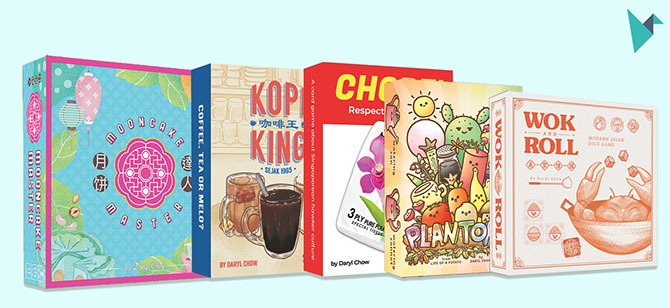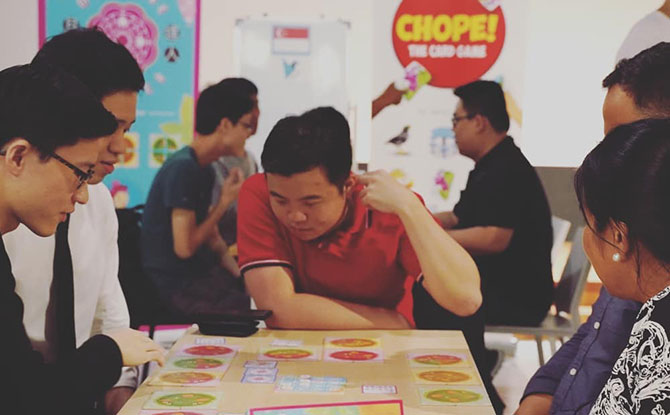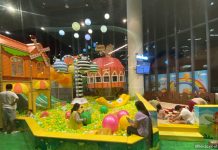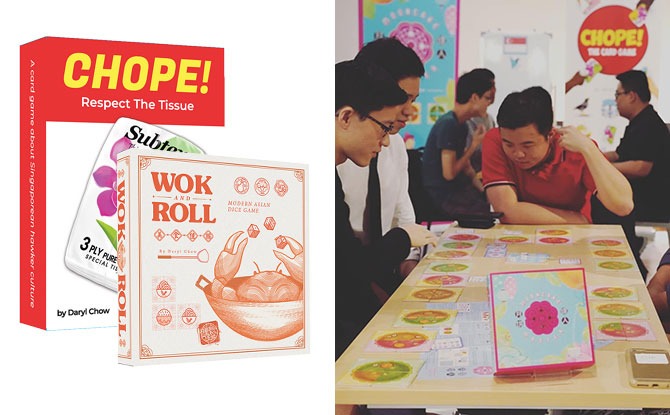
As a parent with kids who are naturally drawn to the screen, we found board games a great way to engage the whole family, practice strategic thinking and bond. We came across Origame and learnt that it developed board games with local themes such as Durian, Kopi, Mooncakes, chope culture, Mahjong and more.
We spoke to Daryl Chow, founder of Origame, to find out more about his amazing job (designing and developing games!) and how his journey into Singapore-flavoured games.
Interview with Origame Founder Daryl Chow
Tell us about yourself and how you began designing games.
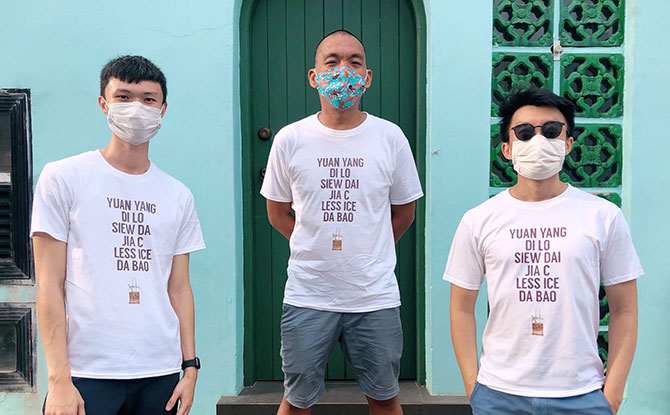
Games have always been a big part of my life, as I played chess and bridge in school. When I started playing modern board games around 15 years ago, I realised that this was going to be a lifelong pursuit, and I played everything I could get my hands on.
Around 10 years ago, the friends who I gamed regularly with in Ottawa started designing and testing games, and I joined in out of curiosity. I ended up hooked to the beauty of the craft of game design, and have never stopped thinking about game design and its permutations since.
My training is in linguistics and academia and I literally have a PhD in the study of Singapore English, but 3 years ago I switched to designing and publishing board games full time when I co-founded Origame. You can only be a game designer if people buy and play your games, so I’m humbled and immensely thankful for the support from everyone so far.
What are some necessary skillsets for game design and development?
Game design is a creative skill, and like any other creative skill, it needs to be fuelled by a passion for your craft and to constantly improve with each product you make. Even though many board game designers are mathematicians and engineers by training and it helps to be quick with numbers, I wouldn’t say that there’s a specific type of background that is particularly pertinent because there are so many other facets of game design – economics, psychology, graphic design, storytelling, logic etc!
Being a good game designer means being a student of life because you need to draw inspiration from everything around you.
For game development (which is slightly different), you need a willingness to persevere and to never be satisfied, because games can always be better. It helps to be a perfectionist and your own worst critic, because your games are definitely going to be criticised and judged!
We like how unique the local-themed board games are, what inspired you to design such games?
When I started playing modern board games I really enjoyed the design and the strategy of the games, but it was only when I started playing games designed by Japanese designers that I felt a strong connection to the hobby.
I think representation from different cultures and people is very important in any creative genre, which is why we support Singaporean literature, movies and other artistic pursuits.
We want our stories to be heard and to be told. Board games are an especially experiential medium, and you can transport yourself to a different place or time when you play a game. I wanted to design games that could bottle some aspects of Singaporean culture so that non-Singaporeans could experience our stories, and which Singaporeans would be able to connect with.
It may seem like I design these games with the theme in mind first, but in actuality it’s usually mechanics first and then letting the theme guide the development and narrative arc of the game.
What are some games you recommend for families of young children (6 to 9) and tweens (10 to 14)?
I started off as a strategy game designer but because I’ve been simplifying my rules so much. I’m now better known as a family game designer, and in general most of my games are suitable for children to play.
For kids 6 to 9, I recommend puzzle-type games with simple strategy, such as Rainforest City and Overbooked. Speed or dexterity games like Chope! and Kopi King are easy-to-teach crowd-pleasers.
For teenagers 10 and up who are looking for a bit more crunch and strategy, Plantopia and Arachnoir offer challenges even for the sharpest brains. The expert menu for Wok and Roll is also a fun brain-burner that serves up lots of combos. In general, board games are really great activities for families not just because of the face-time you experience and the lasting memories they create, but also for the strategy and decision-making processes that the kids pick up in a natural way.
In 2019, I designed a game together with a Japanese game designer friend of mine, Saashi from Kyoto. The game is called Remember Our Trip and in the game you had to ‘recall’ what the cities of Singapore and Kyoto looked like by piecing together ‘memory’ fragments to form a map.
The theme of Remember Our Trip is even more poignant now because we can’t travel! The game is not just great fun but also very meaningful to me because it was my first collaboration with a Japanese designer who I respect very much, and it seamlessly fused together mechanics from two of our published games.
This year, Remember Our Trip won a major international design award (the Beeple) from the harshest game critics in the world, and it was a huge honour to be the first Asian designers to win a major award like that.
What games can we look forward to in future?
There are lots of really interesting games in the pipeline, but in particular there is a co-operative word game that I personally can’t stop playing because of my background in English and linguistics.
There is also a fun rummy-style card game in the works that is inspired by Mahjong but which takes out all the aspects of Mahjong that I dislike. There are also sequels to crowd favourites Overbooked and Kopi King that have already been designed and poised to be even better games than the originals!
What’s your family’s favourite activity on a Little Day Out?
I bring my 2-year old daughter out on adventures every single day, and so I’m always looking for ideas for where to bring her. I know by heart the 15 closest playgrounds to my place and remember the malls in Singapore by what child entertainment they contain.
In general, anything that involves water works well; swimming pools, beaches or fountains. A tip for when you need a quick activity – you can put your game design skills to work by building obstacle courses with furniture and everyday objects, and it’s great for training kids to problem-solve too!
Thank you Daryl for that #protip on designing games for the littlest.
Celebrate Culture through Games for the Family
#supportlocal by getting games that celebrate our Singaporean culture, these would make fantastic souvenirs for our foreigner friends as well! Stay tuned as we review some of Origame’s most popular games on our site.
To see the entire range of Origame games, head to this site.





